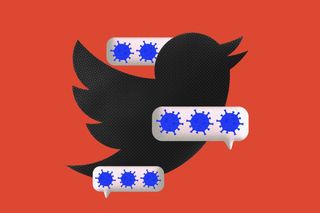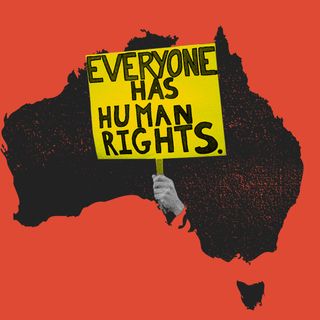
Twitter Discontinuing its Covid19 Misinformation Policy Distorts Free Speech
The move, the latest under Elon Musk’s tenure as “chief twit,” brings into question how the powerful elite shape the idea of free speech.

Twitter added a one-line update on its online rules on Monday night: “Effective November 23, 2022, Twitter is no longer enforcing the Covid19 misleading information policy.” This marks an end the platform’s nearly three-year-long effort in curbing misinformation relating to the Covid19 pandemic. Healthcare workers fear the discontinuation of the misinformation policy — together with Musk’s ideas to verify any account for $8 — could spell serious trouble for public health. As the latest change in the social media site after the takeover by Elon Musk, the move raises questions about how technocrats like Musk view free speech.
In January 2020, Twitter enacted a new policy to prohibit the spread of false information relating to the pandemic. Following this policy, as reported by DW, the social media platform removed more than 1,00,000 posts and suspended more than 10,000 accounts. While at times flawed, the policy crucial to curbing misinformation, especially among people for whom Twitter was the first — and at times, only — source of information. Twitter’s misinformation policy, in fact, was noted by US Surgeon General Vivek Murthy in a 2021 advisory report on technology. Murthy wrote, “Health misinformation… can cause confusion, sow mistrust, harm people’s health, and undermine public health efforts. Limiting the spread of health misinformation is a moral and civic imperative that will require a whole-of-society effort.”
The decision to discontinue the program, despite its largely successful run, undermines the idea of free speech. While Elon Musk is keen on projecting himself as a “free speech absolutist,” in reality, freedom of speech and expression are not — and arguably should not be — absolute rights. This is rooted in the “harm principle.” First articulated by political thinker John Stuart Mill in his 1859 book On Liberty, the principle states that “the only purpose for which power can be rightfully exercised over any member of a civilized community, against his will, is to prevent harm to others.” In other words, the right of a person to their freedom is fundamental only as long as it doesn’t infringe upon someone else’s. The decision to allow misinformation to thrive under the name of free speech — especially in a context where it may result in someone’s death — infringes directly on people’s right to life, and hence undermines the value of free speech itself.
But this isn’t the free speech value that Musk upholds. His digital presence is marked by an insensitive, edgy and offensive streak of humor, and he is a vocal critic of “new-age wokeism.” Soon after he took over Twitter, Musk tweeted, “comedy is now legal on Twitter.” He often remains dismissive of traditional news outlets, and has frequently peddled the idea that they gatekeep information from the general public. And in the past, Musk himself has peddled misinformation about Covid19. His decision to discontinue the misinformation policy, together with his decision to let anyone with $8 have a “verified” badge, can then be seen as an attempt to challenge the viability of established news outlets as sources of information — endangering public health in the process.
Musk’s decision to discontinue a misinformation flagging policy speaks to the emergence of a growing conservative global elite who distort the meaning of free speech. In other words, free speech is sacred — only insofar as the speech is their own.
The move is also only a more proactive version of social media’s general reluctance in acting against misinformation. As the Future of India Foundation’s “Politics of Disinformation” report noted, “Social media platforms cite ‘free speech’ in order to absolve themselves of their role in spreading misinformation.” In fact, it may often be in the interest of social media heads to let their sites host misinformation.
Related on The Swaddle:
Elon Musk is Now Twitter’s Biggest Shareholder, but His Free Speech Agenda is Misleading
Posts spreading misleading information often lead to more engagement, leading to more traffic and ultimately more revenue for the social media site. A joint study conducted across multiple countries by the Reuters Institute and the University of Oxford published in 2021 observed how social media in most countries was seen as the biggest source of discrimination, further showing how absolute free speech infringes on other fundamental rights. “There is a real risk that the technical and commercial systems run by some of these companies can exacerbate some disinformation problems due to the way in which they incentivize actors (whether political, for profit, or with other motivations) through ranking decisions and through the flow of attention, advertising revenues and other valuable, scare resources,” the study noted.
Moreover, a value system where free speech protects misinformation allows Musk to not place — or even accept — a negative value judgement on his own words. Recounting the instances where Musk engaged in spreading misinformation about the novel coronavirus and how it acts, The Washington Post noted, “In 2020, he claimed that coronavirus cases would be ‘close to zero’ by April 2020. He also told SpaceX workers in March 2020, as the world was just beginning to shut down during the pandemic, that they were more likely to die in a car crash than of Covid19.”
In the summer of 2020, Musk reopened a Tesla plant in California against official health and safety orders. He insisted that workers who felt ill could stay home without fear of penalization, only to later go on to fire them when they did choose to stay home because of Covid19. Further, in a 2020 Tesla earnings call, Musk termed government restrictions on people’s movements due to Covid19 “fascist.” Unsurprisingly, Musk also publicly claimed that he wouldn’t take the Covid19 vaccine.
The current policy, then, can have severe consequences for global public health. “People with the purchased blue check marks will certainly sell snake oil and promote baseless ideas for their own personal and political profit, and the result will be that poor people will continue to die from Covid19,” John Shaffer, a US-based health sociologist told the Washington Post while reacting to Musk’s decision to discontinue the policy. One of the first voices that came out in support of the policy’s removal was that of Dr. Simone Gold, a leading member of the anti-vaccine camp in the U.S. Soon after Twitter rolled back its COVID misinformation policy, she tweeted, “This policy was used to silence people across the world who questioned the media narrative surrounding the virus and treatment options. A win for free speech and medical freedom!”
Musk’s decision to move away from flagging Covid19 misinformation on Twitter, then, stems from framing some kind of speech as free speech over other kinds. With discontinuing the policy, Musk isn’t just washing off Twitter’s responsibility in providing the correct information on Covid19 to a world where social media increasingly is the only source of information to a lot of people. He is simultaneously also foregrounding his own personal views on health and policy as viable and non-harmful and an exercise in free speech.
Amlan Sarkar is a staff writer at TheSwaddle. He writes about the intersection between pop culture and politics. You can reach him on Instagram @amlansarkr.
Related


The U.S. May Research Dimming the Sun as a Climate Solution. What’s the Fallout?
